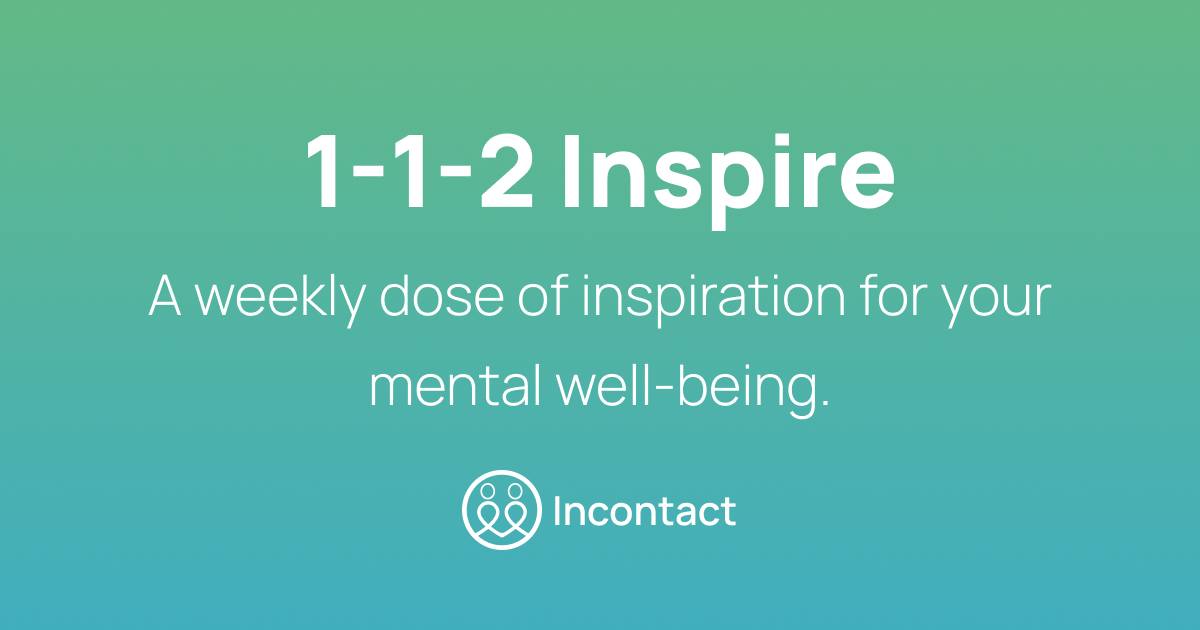- 1-1-2 Inspire
- Posts
- 1-1-2 Inspire: The giver mindset is a sign of intelligence
1-1-2 Inspire: The giver mindset is a sign of intelligence
Edition #17

Hi there, I’m Aarti, Founder and Lead Counsellor at Incontact. Welcome to the 17th edition of 1-1-2 Inspire, where we bring you one story, one takeaway, and two tools to elevate your work and life.
This week, let’s explore a powerful idea that challenges common wisdom:
Is giving the fastest path to burnout — or the smartest strategy for success?
Organizational psychologist Adam Grant’s research reveals a surprising truth about givers, takers, and the real key to rising to the top. And as you’ll see, the answer lies not just in generosity, but in intelligence — the kind that balances kindness with clarity, and compassion with boundaries.
Let’s dive in.
1 Story—Givers and takers
Organizational psychologist Adam Grant studied thousands of professionals over a decade. He discovered that people tend to fall into three broad styles at work:
Givers, who focus on contributing to others without expecting immediate returns.
Takers, who strive to get more than they give.
Matches, who believe in an even exchange.
People who consistently performed the worst were givers! They struggled with saying no and often spread themselves too thin. They burned out, got exploited, and ended up at the bottom of the success ladder.
But Grant also uncovered a deeper layer:
The most successful people — those at the very top — were also givers.
The key difference was not their generosity, but how they gave.
Successful givers operated with a mindset of sustainable contribution. They focused their giving where it created the greatest mutual benefit. They helped in ways that leveraged their strengths and protected their time and energy. They were generous, but not self-sacrificing to the point of depletion.
Smart givers know when to say yes, when to say no, and how to give in ways that energize rather than exhaust. They set clear boundaries, specialize their help, and avoid takers who drain them. They choose their moments and methods of generosity with precision — turning giving into a strategy rather than a sacrifice.
This pattern shows up everywhere:
In sales, the top earners are those who genuinely help clients — but they also walk away from bad deals.
In healthcare, doctors who show empathy improve patient outcomes — but they protect their time and emotional bandwidth.
In everyday life, those who build strong networks do so by giving, but they make sure their relationships are reciprocal over time.
Smart generosity is a marker of high intelligence.
People who are more thoughtful, kind, and cooperative tend to score higher on cognitive tests.
That’s because giving, when done wisely, requires complex thinking: weighing long-term gains over short-term costs, reading people accurately, and managing resources effectively.
Grant’s research confirms this: generosity is not soft-hearted foolishness. It is a strategic, high-return investment — one that requires emotional intelligence, boundary-setting skills, and the foresight to give in ways that create lasting value.
It’s not just a good heart that lifts givers to the top. It’s also a sharp mind.
1 Takeaway—Practice meaningful generosity
Generosity is not just morally admirable — it is intellectually strategic.
The smartest and most successful people practice meaningful generosity: they give in ways that amplify their strengths, build meaningful connections, and create compounding returns over time. Smart gives also set boundaries, protect their energy, and avoid being exploited.
True intelligence lies in knowing not just that to give, but how, when, and to whom. Done right, giving becomes the ultimate success strategy — one that elevates both you and those around you.
2 Tools to practice smart giving
Giving is powerful, but like any investment, it needs to be managed wisely. Here are two ways to be generous without overdoing it:
The 5-Minute Favor Rule
Say yes when you can offer help in five minutes or less, or when it taps into your unique strengths. Small, high-impact favors build goodwill without draining your energy or time.Spot the Takers Early
Pay attention to people who consistently take without giving back, or show up only when they need something. Limit your investment in such relationships. Smart givers focus their energy where mutual benefit can grow over time.
Generosity, when practiced with intention and wisdom, is not a weakness — it’s a mark of true intelligence and strength. Smart giving doesn’t just help others. It builds your own resilience, expands your influence, and creates success that is both sustainable and deeply rewarding.
As you move through the week, I invite you to reflect:
Where can you give more meaningfully? And where might setting a boundary actually make your generosity even more powerful?
Warm wishes,
Aarti
Reply